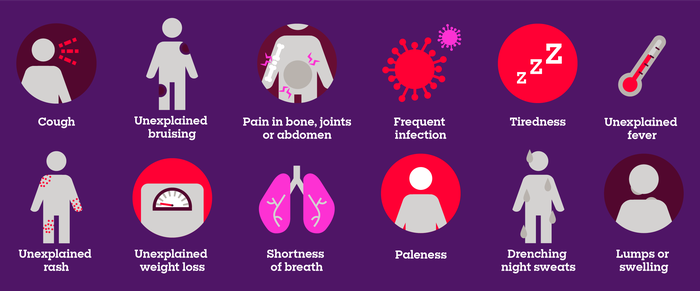
Some medical experts and a cancer survivor, on Sunday emphasised the need for regular screening and early detection of cancer to enhance treatment.
They spoke at a Muslim women health programme in Lagos.
The programme, organised by Bounties Charity Initiate (BCI), was to educate women on health and well-being.
BCI is a non-governmental organisation made up of female Muslim professionals who pooled resources to support women’s health and well-being.
The programme had the theme: “Serenity Now, Finding Peace in a Chaotic World”.
It featured physical exercise, free medical screening, referrals and introduction of products to enhance women’s well-being.
The event was attended mainly by women of child-bearing age.
An oncologist, Dr Bilikis Adetutu-Isowo, who was the keynote speaker at the event, cautioned against seeking medical attention for cancer late.
She said that at that stage, there would be little or nothing that could be done.
“As a woman, as soon as you notice any lump in your breast, do not waste time to go for screening to determine its state,” she said.
She decried non-professional handling of patients in some hospitals, and advised patients to consult experts in the particular area of their health challenge to achieve healing.
Dr Fatimah Habeeb-Adeyemi, a panelist at the event, said that women of child-bearing age and those using hormonal inducement were at a higher risk of cancer.
Adeyemi discouraged having multiple sex partners, saying that such predisposed women to cancer and other sexually-transmitted diseases.
Mrs Oyekemi Bawa-Allah, a cancer survivor, said that having a supportive family helped her to overcome cancer.
Bawa-Allah added that religiously administering the right drugs was essential.
“Cancer is not a death sentence as perceived by many. What is essential is to notice it on time and take the necessary steps to quell it.
“Your emotional support community should include other patients and survivors to relate with them on the best practice to manage it,” she said.
A medical doctor, Rabi Abdullah, advised against stigmatisation of cancer patients, saying that they needed every support.
What is cancer?
Cancer is a disease in which some of the body’s cells grow uncontrollably and spread to other parts of the body.
Cancer can start almost anywhere in the human body, which is made up of trillions of cells. Normally, human cells grow and multiply (through a process called cell division) to form new cells as the body needs them. When cells grow old or become damaged, they die, and new cells take their place.
Sometimes this orderly process breaks down, and abnormal or damaged cells grow and multiply when they shouldn’t. These cells may form tumors, which are lumps of tissue. Tumors can be cancerous or not cancerous (benign).
Cancerous tumors spread into, or invade, nearby tissues and can travel to distant places in the body to form new tumors (a process called metastasis). Cancerous tumors may also be called malignant tumors. Many cancers form solid tumors, but cancers of the blood, such as leukemias, generally do not.
Benign tumors do not spread into, or invade, nearby tissues. When removed, benign tumors usually don’t grow back, whereas cancerous tumors sometimes do. Benign tumors can sometimes be quite large, however. Some can cause serious symptoms or be life threatening, such as benign tumors in the brain.
General cancer symptoms:
- Very heavy night sweats or fever. Sweating at night or having a high temperature (fever) can be caused by infections or a side effect of certain medications. …
- Fatigue.
- Unexplained bleeding or bruising.
- Unexplained pain or ache.
- Unexplained weight loss.
- Unusual lump or swelling anywhere.
How long can you live with cancer without knowing?
How long can you have cancer without knowing it? While some cancers grow very quickly, other cancers are very slow growing and can even go undetected for ten years or more. One example is certain types of thyroid cancer, which are very slow growing and may never spread beyond the thyroid gland.
What is silent cancer?
Silent cancers do not have any initial symptoms. It is because most of these cancers affect the internal organs such as the stomach, intestines, liver, pancreas, lungs or bladder. They affect organs and other parts deep inside the body, so it is difficult to find them during a regular physical examination.
How can you prevent cancer?
- Don’t use tobacco.
- Eat a healthy diet.
- Maintain a healthy weight and be physically active.
- Protect yourself from the sun.
- Get vaccinated.
- Avoid risky behaviors.
- Get regular medical care.














